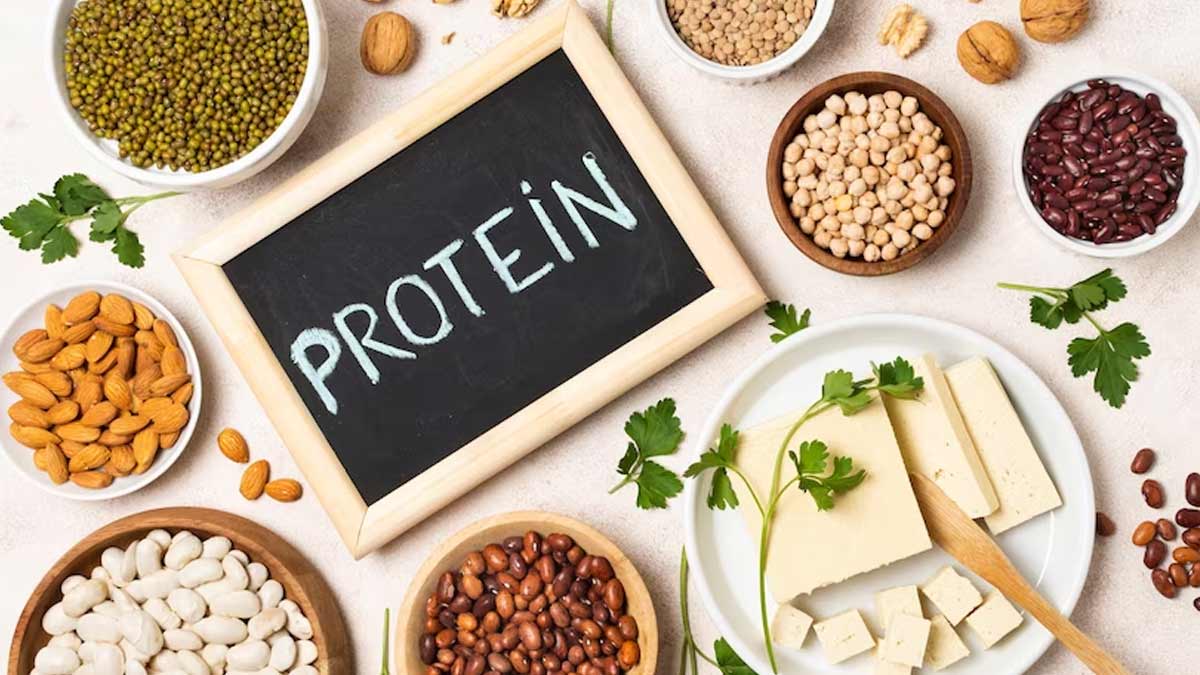
When considering plant protein versus whey protein for long-term use, several factors need to be taken into account, including nutritional content, digestibility, environmental impact, and individual health needs. Here's a detailed comparison:
Table of Content:-
Nutritional Content
Whey Protein
Whey protein is derived from milk, a by-product of cheese production. Complete protein containing all nine essential amino acids. Its bioavailability is high; rapidly absorbed and utilised by the body.

Whey protein is popularly used among athletes for muscle recovery and growth due to its rich leucine content, which is crucial for muscle protein synthesis.
Plant Protein
Derived from various plants like peas, rice, hemp, soy, and others. Plant protein can be complete or incomplete. For example, soy protein is complete, while others like pea or rice protein may lack certain essential amino acids but can be combined to form a complete profile.
Also read: Are You Vegetarian and Protein Deficient? Here Are 7 Fruits That Can Help
Generally plant protein is lower than whey but still effective. The digestibility can vary depending on the source and processing methods. Favoured by vegans, vegetarians, and those with lactose intolerance or dairy allergies. Digestibility and Allergens.
Whey Protein
Digestibility: Generally easy to digest for most people, but can cause issues like bloating or gastrointestinal discomfort in those with lactose intolerance or dairy allergies.
Allergens: Contains lactose and dairy proteins, which can trigger allergies or intolerances.
Plant Protein
Plant protein may be harder to digest due to the presence of fiber and antinutrients (like phytic acid) in some plants. However, many plant proteins are processed to improve digestibility. Usually hypoallergenic, though some sources like soy can be allergenic for certain individuals.

Health Benefits
Whey Protein
- Muscle Growth and Repair: Highly effective for promoting muscle protein synthesis.
- Immune Support: Contains immunoglobulins and lactoferrin, which can support the immune system.
- Weight Management: Can aid in weight loss by promoting satiety and muscle preservation.
Plant Protein Health Benefits
- Heart Health: Often contains fiber and beneficial plant compounds that can support cardiovascular health.
- Antioxidants and Phytochemicals: Provides various beneficial compounds that can contribute to overall health.
- Weight Management: Similar to whey, plant protein can promote satiety and support weight management efforts.
Impact On Environment
Whey Protein
Production Impact: Higher environmental footprint due to dairy farming, which involves higher water usage, greenhouse gas emissions, and land requirements.
Plant Protein
Production Impact: Generally more sustainable and eco-friendly, with lower water usage and greenhouse gas emissions compared to animal farming.
Long-Term Considerations
Whey Protein
- Pros: Effective for muscle growth, rapid absorption, complete amino acid profile.
- Cons: Potential allergens, lactose intolerance issues, higher environmental impact.
Plant Protein
- Pros: Suitable for a wider range of dietary preferences and restrictions, lower environmental impact, can offer additional health benefits from plant compounds.
- Cons: Might need to combine different sources to achieve a complete amino acid profile, lower bioavailability in some cases.
For Muscle Building and Athletic Performance. Whey Protein might be more advantageous due to its complete amino acid profile and rapid absorption. For Overall Health, Sustainability, and Dietary Restrictions. Plant Protein could be a better long-term choice, especially for those with lactose intolerance, dairy allergies, or a preference for sustainable and ethical consumption.
Ultimately, the best choice depends on individual health needs, dietary preferences, environmental considerations, and specific fitness goals. A combination of both might also be a viable strategy for some people, balancing the benefits of both protein sources.
Also watch this video
How we keep this article up to date:
We work with experts and keep a close eye on the latest in health and wellness. Whenever there is a new research or helpful information, we update our articles with accurate and useful advice.
Current Version